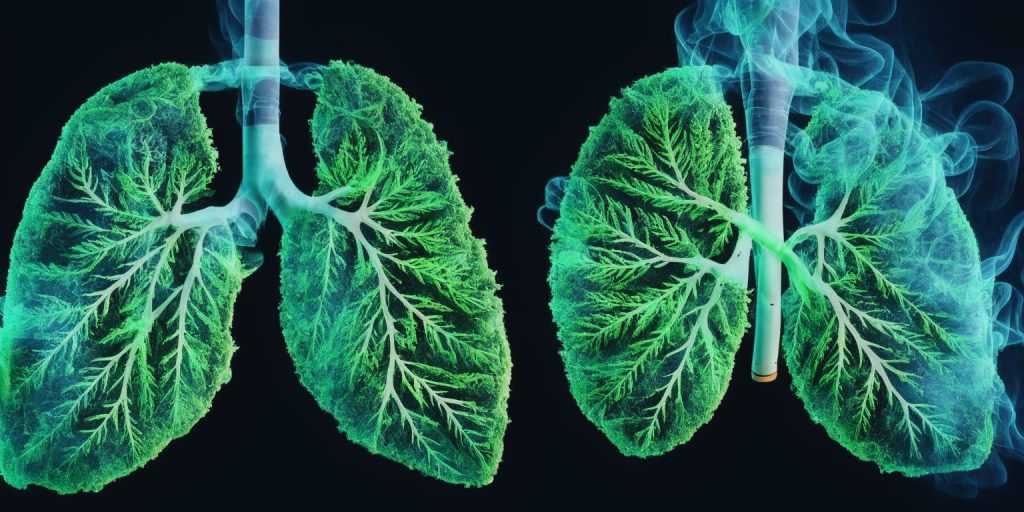
In the evolving discourse surrounding cannabis use, misconceptions often cloud the truth. One such misconception is the idea that inhaling marijuana smoke is safer than tobacco smoke. A recent study found that this belief is not substantiated by scientific evidence. This article, originally published in a reputed journal, delves into the topic of marijuana tar, explicitly focusing on reclaimed cannabis resin. Often, users believe smoking reclaimed cannabis is a harmless practice. However, the reality is that not only is the smoke an irritant to the throat and lungs, but it also carries a potential risk of lung cancer. We will explore these issues in depth, shedding light on the implications of inhaling reclaimed cannabis resin.
Incidents of Mortality Connected to Marijuana Vaping
As vaping gains popularity, particularly among younger users, a concerning trend has emerged in the form of illnesses and deaths related to marijuana vaping. While many users believe vaping to be a safer alternative to traditional smoking methods, recent studies and reports suggest otherwise.
In 2019, a mysterious outbreak of lung injury associated with vaping made headlines. People who succumbed to this illness often used products containing Tetrahydrocannabinol (THC), the primary psychoactive compound in cannabis1. By February 2020, a staggering total of 2,807 hospitalizations and deaths resulting from e-cigarette or vaping product use-associated lung injury (EVALI) had been reported2.
The link between these cases and THC products is alarming. According to an analysis, a significant 84% of people who died in the outbreak had used THC products3. Concurrently, teen use of marijuana through vaping continued to rise despite these reported deaths4.
The term E-cigarette or vaping use-associated lung injury (EVALI) was coined to describe this significant concern due to the ongoing use of nicotine and/or cannabis-containing products5. The seriousness of this issue became even more evident when hidden vials of marijuana for vaping were discovered in a young patient’s room during an investigation into this illness.
By February 2020, 68 deaths linked to vaping products had been confirmed across 27 states and the District of Columbia7. These statistics are shocking, especially considering that 84% of these deaths suggest a link to THC, not nicotine8.
While many users believe that vaping is a safer method of consuming cannabis, the reality is that it can lead to serious health issues, including lung cancer. When you vape, you’re inhaling a mix of chemicals that have been heated to high temperatures. This can lead to a condition called “popcorn lung,” a type of lung disease that causes coughing, wheezing, and shortness of breath.
In conclusion, while vaping marijuana may seem like a safer alternative to traditional smoking methods, it’s crucial to be aware of the associated risks. With an increasing number of deaths and illnesses related to vaping cannabis, it’s clear that more research is needed into the long-term effects of this practice9.
So, before you decide to vape, consider the potential health implications. Your lungs and your life may depend on it.
Key Takeaways
The smoking of reclaimed cannabis resin, often referred to as cannabis reclaim, has been a topic of interest for many users. This substance is a byproduct of smoked cannabis and contains concentrated levels of THC. However, it’s essential to understand the potential risks associated with this practice, including damage to the respiratory system due to harmful byproducts like ash and tar.
What are Trichomes?
Trichomes are tiny, sticky crystals that cover the cannabis plant. Reclaimed cannabis resin contains these trichomes along with other harmful substances. The process of smoking reclaimed cannabis has become quite popular in the United States, despite warnings from the Institute on Drug Abuse about the potential health risks associated with this practice.
Hash and Rosin
According to an article initially published on Flowertown, hash, and rosin are both products made from the trichomes of the cannabis plant. The International Lung Cancer Consortium has expressed concerns about the mental health implications of using these concentrated forms of cannabis, highlighting the need for further research in this area.
Hash and Rosin Highs
A study found that the highs experienced from hash and rosin could potentially lead to mental health issues. The Mental Health and Substance Use Disorder Services have reported cases of anxiety and paranoia among users, emphasizing the need for caution and moderation in use.
How We Reviewed This Article:
Through careful examination of cannabis reclaim.
A Growing Acceptance
Despite the potential risks, there’s a growing acceptance of smoking reclaimed cannabis resin in society. However, the Centers for Disease Control and Prevention warn that any form of smoke is an irritant to the throat and lungs and can lead to significant health problems over time.
Concerning Research
Research has shown that the toxins present in reclaimed cannabis resin can be more harmful than regular tobacco smoke. A study found a potential link between the long-term use of reclaimed cannabis resin and lung cancer. These findings are a stark reminder of the potential health risks associated with the practice, underlining the need for further research and regulation.
Conclusion
Based on the research and data found, smoking weed appears to have a significant impact on lung health. Chronic cannabis users have been reported to experience an increased incidence of respiratory symptoms such as chronic cough, sputum production, and dyspnea. There’s a general consensus that marijuana smoking causes respiratory symptoms and increases the risk of chronic bronchitis among long-term users. Furthermore, cannabis use has been associated with higher lung volumes, suggesting hyperinflation and increased large-airway resistance. Evidence also suggests a dose-response relationship between cannabis smoking and reduced forced expiratory volume, indicating specific airway resistance. Overall, it can be concluded that while there may be some perceived benefits of cannabis use, its impact on lung health is mainly detrimental.



